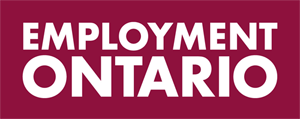When it comes to being successful in the workplace, you need practical, job-specific skills: “hard skills” and “soft skills.”
For example, if you want to be an electrician, you need to be able to prepare, assemble, install, test, troubleshoot and repair electrical wiring, fixtures, and equipment. These skills are often referred to as “hard skills”
Hard skills are teachable and are acquired through some form of education and training. They are easy for an employer or recruiter to recognize. Also, depending on the role, employers may also provide the hard skills training needed for the job, especially for more entry-level, frontline positions.
But there are other types of skills needed to be successful, especially in the food and beverage processing industry, where you’ll be working alongside other people. These often-overlooked skills are more subjective and harder to quantify. These are known as “soft skills.”
What are soft skills?
Soft skills are also commonly referred to as “people skills” or “interpersonal skills.” They refer to how you interact and relate to other people. They include things like communication, flexibility, leadership, patience, teamwork, and time management, among others.
It’s skills like these, along with the hard skills, that employees will be looking for when interviewing potential hires. One of the best ways to showcase your soft skills to employers is to use concrete examples of how you’ve demonstrated such skills in the past.
Another is to demonstrate that you’ve done outside training to support your development of soft skills.
CareersNOW!’s free Job Ready skills training offers a variety of soft skills courses (along with some great hard skills) for the food and beverage processing industry.
The courses were curated by Food Processing Skills Canada specifically for CareersNOW! The course topics cover everything from soft skills to more industry-specific skills like allergens and industrial safety.
Upon the completion of each course, members get a nationally recognized certificate. Once they complete all 14 courses, you will receive a graduation package which includes an official transcript and program completion certificate to show employers you’ve successfully completed the training.
Here are five free CareersNOW! soft skills training courses you can take today:
Employer & Employee expectations
Canadian workplace culture expects individuals to be competent in speaking, listening and socializing with other people; to know the etiquette of working harmoniously with co-workers and supervisors, and to understand and respect cultural differences in the workplace. Employees are also expected to know general business etiquette, how to dress for the production floor and the office environment, and their rights and obligations in the Canadian workplace. Being familiar with and meeting these expectations is important to job success and career advancement in Canada.
This course will provide you with the knowledge and skills to understand what is expected of you as an employee within a Canadian Workplace. Being familiar with and meeting these expectations is important to job success and career advancement in Canada.
Workplace Essentials: Thinking Skills
This course addresses thinking skills, which are high on the list of skills that extensive government and industry research has identified as essential to success in work, learning, and life. These skills provide the foundation for learning other skills and are the cornerstone of lifelong learning. Lifelong learning and workplace skills training are closely linked to productivity, adaptability, and innovation, all vital elements of today’s competitive and rapidly changing global business environment.
This course provides guidelines for making decisions, solving problems, thinking critically, resolving staff conflict, improving products and processes, providing quality control, and facilitating change.
Workplace Essentials: Oral Communication
In the food and beverage processing industry, you’ll find that oral communication skills will help you to be a more valuable employee. When you first think of oral communication, giving speeches and presentations might come to mind. But, oral communication is also about everyday communicating and talking with others at work and at home.
Upon completing this course, you’ll understand the importance and benefits of good communication skills; understand the importance of sending clear messages, and understand the communication loop. You will also learn strategies for reducing errors in communication and techniques and strategies for effective oral communication.
Introduction to Emotional Intelligence
You may be wondering, “Why should I take this training?”
So, let’s begin with the fact that by educating yourself on emotional intelligence, you will enjoy the fruits of being more successful in your job, career and life in general.
Other benefits of completing this course include: Understanding yourself better, helping you deal with everyday problems and conflicts more effectively, making better decisions, building and maintaining healthy relationships with others, and being more productive at work.
Workplace Essentials: Working with others
Working with others includes working with a partner or a team to complete your tasks. Every employee in a food processing facility has to work with others during the day, whether you have to collaborate with workers from another department to solve a production issue or work as a member of a larger team to complete a rush order. Being able to work well with others is a skill that your employer greatly appreciates.
Upon completing this course, you’ll have learned how to demonstrate professional and ethical behaviour; model a positive attitude for others; and collaborate effectively with workplace partners and teammates. You will also know how to give and receive positive and constructive feedback.






